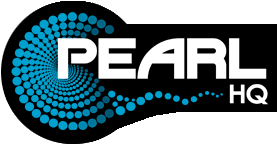OK so part 5 of the series – into The Recording Process. Regardless of where you are recording, what equipment you can/can’t access, to me the goals of every recording session are:
- To capture the sound of each instrument/voice as close as possible to what you perceive in the end product.
If you have a good idea what you want the end product to sound like– then you have direction as to the guitar tone you’re after, how much crack should be in the snare, how warm or edgy the vocal, etc.
It may change along the way, that’s fine, but you have direction to the session.
Capturing lots of ‘information’ also allows flexibility later (you can always take something out but if something isn’t there, it can’t always be created in post production). - To capture the ‘best’ take (or takes) a musician/singer can achieve. Now the ‘best take’ may not be the one where the vocalist is dead on tune– it may be where they are the most expressive, really ‘telling the story’. It may be the one where the guitarist emotes the lick just right or there is a couple of sections that comp’d together provide the perfect bass understory to the song.
- To come away from each session with all parties pleased with the result and ready to move on
How is all that achieved? Again we go back to pre-production, but also good communication through the whole process is vital, as well as a clear picture of the expected outcome from the recording sessions, known to all. Lots of discussion, ensuring everyone is on the same page, is prepared and ready is also key.
In addition:
- The recording environment is a comfortable environment for all, not just physically but the atmosphere/emotionally.
- That there is trust in everyone’s ability to do their job and they are allowed to do it. And each trusts themselves to get their role accomplished. This extends past the musician/singers.
- If a producer is part of the process, clear definition of roles and authority (eg. who has final call on various aspects)
- What the engineer is expected to do – and especially what they not (eg, engaging an engineer to just record, one doesn’t expect any producer-like input)
Good communication, mixed with plenty of preparation, everyone competent and ready to do their job = a successful recording outcome.
With 37 years experience in the industry, Ian Pav is a producer, mentor and owner of PavMusic (studios and production). Now based in Rosebud, the construction of his new production studio is almost finished. Ian is looking to work with clients around the Peninsula at a discounted rate to help locals from his ongoing clientele around Australia & overseas. You can see more or contact Ian via www.pavmusic.com or learn more music industry business info through his wordpress blog pavmusic.wordpress.com.
IAN PAV


